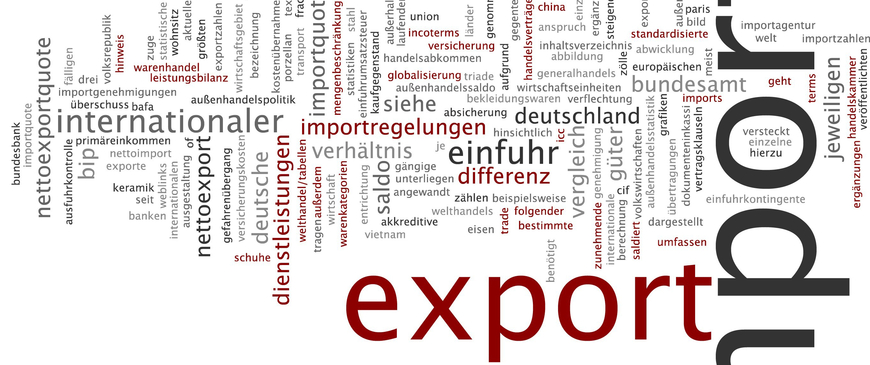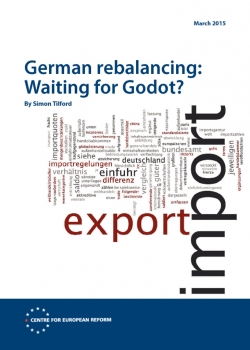
German rebalancing: Waiting for Godot?
Far from rebalancing, Germany’s trade surplus continues to grow. This is in nobody’s interests. The German government could and should take steps to reduce it.
View the press release.
- German rebalancing is always about to happen but never does: the country’s current account surplus hit a record 7.5 per cent of GDP in 2014. This is not in Germany’s interests. The current account balance is the difference between a country’s income and what it spends. A surplus therefore represents lower consumption and investment in Germany than otherwise would be the case. Moreover, Germany’s surplus is also a formidable obstacle to sustained economic recovery in Europe.
- The surplus reflects anaemic domestic demand, which grew at just 0.4 per cent a year between 2012 and 2014. A combination of real wages having barely grown for 15 years and high household savings means that private consumption has fallen as a share of GDP. This is a major reason why business investment is weak despite robust corporate profits. And the government is running a budget surplus. Germany has substituted external demand, in the form of additional net exports, for deficient demand at home.
- The country’s imbalances are not primarily the result of demographics, lack of competitiveness and loss of macroeconomic policy autonomy on joining the euro, or cheaper investment goods. Rather, they reflect political choices: the government’s drive to balance the budget; reforms that undermined labour’s bargaining power; a highly unequal distribution of wealth; and too much taxation of consumption and too little of corporate profits, wealth and property.
- Aside from depressing living standards and productivity growth, Germany has lost almost a third of the savings that it has invested abroad since 1999; it is hard to believe that this money could not have been invested more productively at home. German rebalancing would also boost the eurozone economy, lift inflation and make it easier for other eurozone countries to service their debts, including those debts owed to Germany. This, in turn, would help reduce the global economy’s excessive reliance on the US.
- Germany’s imbalances are too big to correct themselves. A number of policy steps would help to boost demand and reduce surplus savings: a big public investment programme and higher public sector wages; lower taxes on consumption and higher ones on corporate income, wealth and property; steps to encourage greater home ownership, and hence a more equal distribution of wealth and lower households savings; and unequivocal support for aggressive monetary stimulus by the ECB.
- As the German government shows little inclination to take active steps to foster rebalancing, the European Commission should step up pressure on it to do so. At present, the Commission does not treat current account surpluses with the same seriousness as it treats deficits. And the German government does not take the Commission’s tame warnings seriously.
Copyright is held by the Centre for European Reform. You may not copy, reproduce, republish or circulate in any way the content from this publication except for your own personal and non-commercial use. Any other use requires the prior written permission of the Centre for European Reform.

